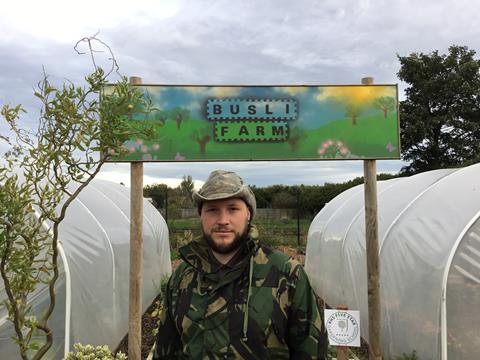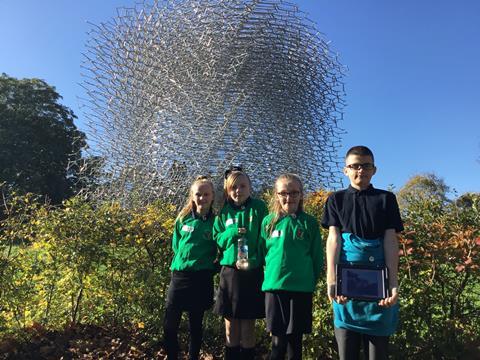We hear from Christopher Wharton-Lovett, an outdoor education teacher, about his approach to learning outside the classroom.

Christopher Wharton-Lovett is outdoor education teacher at the 265-pupil Goldthorpe Primary School in Barnsley, South Yorkshire. The designated Eco-School relocated to a new site in 2016 and has its own allotment where children grow their own food as well as looking after a small farm. Christopher joined the school in 2015 and is responsible for the five elements of the Eco-School programme - farm, gardening, survival, construction and conservation school.
What are your main objectives when organising trips?
We are looking for value-for-money experiences in places offering a practical environment that activate and expand topics being studied in the classroom and create lasting memories for the children. We prefer to go locally as we want to spend more time at the chosen venue than sitting in a traffic jam.
How do trips benefit your pupils?
In most cases we are taking pupils to places they will never have been to before. What others might take for granted is a big thing for them and we are providing them with opportunities they would not get otherwise.
Some of our pupils, who find academic learning challenging are excited and enthused by trips and they take this back to the classroom where they want to write about their experience.
What challenges do you face and how do you overcome them?
Like many schools it is mainly financial. We are proactive and look for funding opportunities and take up any that are presented to us. There is a lot of support locally to help take children outside the classroom and we speak to the local council and other people to find what opportunities there are. At a time when school budgets are being cut having the ability to find really good trips for little or no cost has been a real positive for us by ensuring our children do not miss out.
What are some of your most memorable trips?
The whole school was invited to the Countryside Live event as a result of the organisers seeing us on social media. Although it wasn’t practical to take all the pupils, we took 40 and had an amazing day.
The pupils had never seen anything like it before and it took them into a completely different environment. It was really relevant to many of the things we do as an Eco-School and the children became really engaged in practical things such as milking cows and being able to touch sheep and pigs, which many of them hadn’t even seen before.
We were also given 40 free places to Chester Zoo and again the majority of the children had not seen an elephant in real life. At school we are involved with conservation work with organisations such as the RSPB and the zoo enabled them to learn about conservation on a global scale.

Is there anywhere you would particularly like to take your pupils?
I would really like to organise a residential for Year 6 to encompass what they have learned throughout school and to celebrate their time with us. We are looking to organise a bushcraft residential where there would be no technology or mobile phones and the children would cook over an open fire and sleep under the stars.
Do pupils get involved in the planning process?
Very much so. We ask the children what they would like to do and where they would like to go and often they come up with better ideas than us. We also ask them to help with the research and this makes them feel involved and part of the whole planning process. So when the trip comes around it is not a case of us telling them what they are going to do, but as they have been involved from the outset they feel it is their idea and are therefore very positive about the whole thing.
What are some of your top tips?
When finances are an issue I would definitely recommend going out to seek funding and finding out who can help out. It pays to be proactive and I answer every email that I get and this has led to us getting support to go on trips.
Also check out the reputation of the provider and get feedback. Just because it was good when you first went there it might not still be the same and somewhere else might do a better job.










